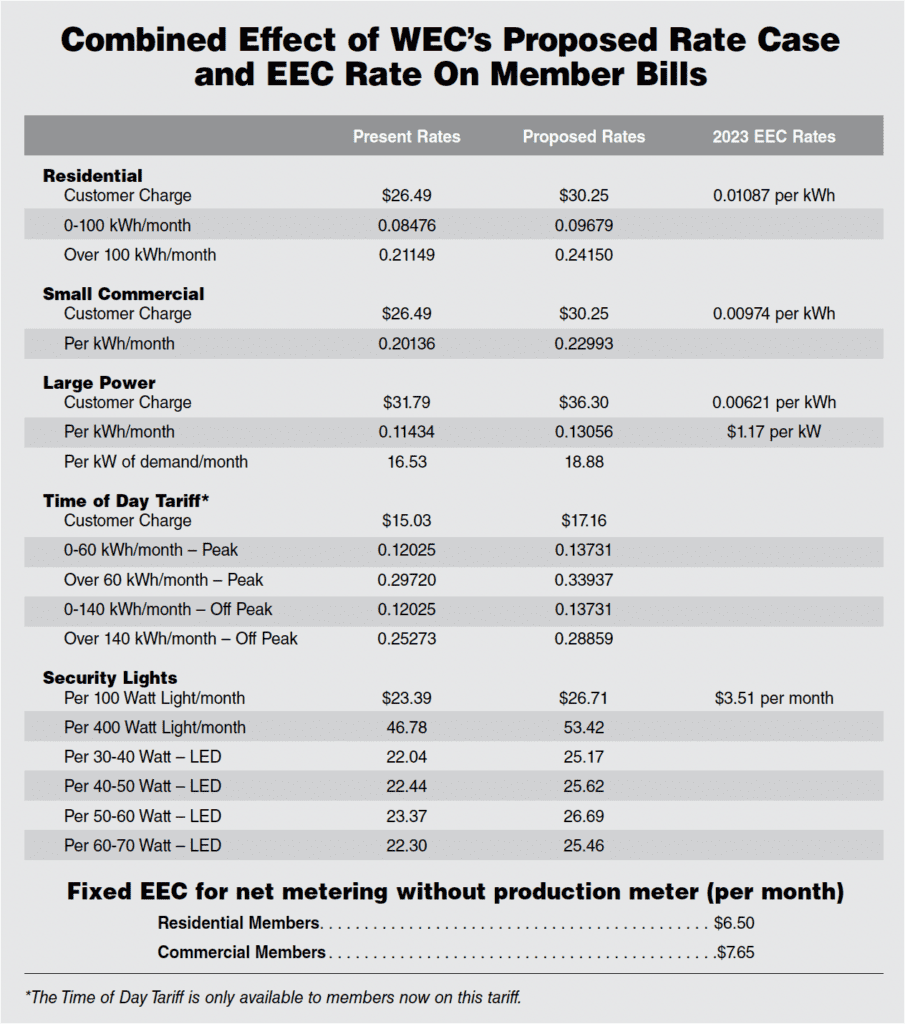Energy Efficiency Charge Rates for 2023
In November, the Public Utility Commission issued its order setting Energy Efficiency Charge (or EEC) rates to take effect on electric bills issued on or after February 1, 2023.
Per the order, almost all customer classes will see rate reductions in 2023, based on the rule that governs the calculation of EEC rates. Efficiency Vermont put forth that the same calculation has the potential to cause a rate increase in 2024, and proposed an alternative method that defers 50% of 2023 revenue adjustments to 2024. This maintains a rate decrease to most customer classes and also, per the order, “delivers rates that are likely to be more stable and predictable for customers.” To view the full order: epuc.vermont.gov/?q=node/64/170342
PUC: Notice of Proposed Tariff Changes
On September 15, 2022, Washington Electric Cooperative, Inc. filed a request with the Vermont Public Utility Commission (PUC) for an increase in retail rates of 14.19%. The main drivers of this rate increase are increasing costs for purchasing power coupled with a decline in power production at WEC’s primary generating facility, and assuring compliance with lender requirements.
This change will take effect with power sold on and after November 1, 2022 and will be reflected on bills received in November. If the PUC opens a formal investigation of this matter, this increase will be shown as a separate surcharge on bills until the PUC finishes its investigation.
Any interested person may examine the rate increase filing via ePUC at:
https://epuc.vermont.gov/?q=node/86.
The Case No. is 22-4100-TF. The filing is also available at the Washington Electric Cooperative office during normal business hours. Comments regarding the rate filing may be submitted to the Public Utility Commission by October 17, 2022 via mail at 112 State Street, Montpelier, VT 05620-2701, via email at puc.clerk@vermont.gov, or through the e-PUC at https://epuc.vermont.gov/?q=node/32.
To determine the impact on your individual bill, use the present and proposed rates column and your average monthly consumption. For example, a residential member
using an average of 500 kWh a month would calculate their bill as seen in
the table below.
Note to members: Although the deadline for comments as stated in the above notice is passed, there is a public hearing at which further comments can be made. Please see the notice: Notice of Public Hearing.
The following chart combines all rate changes affecting WEC members:
/

